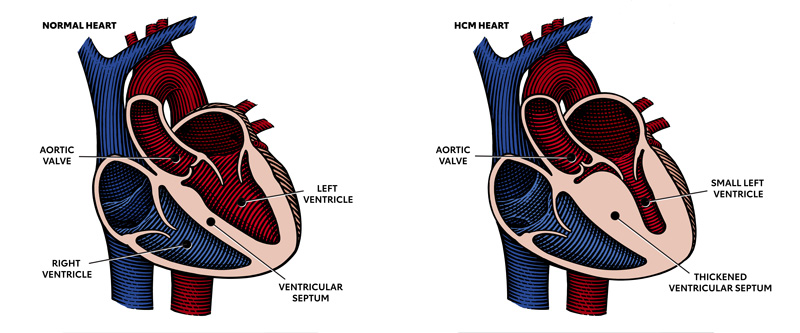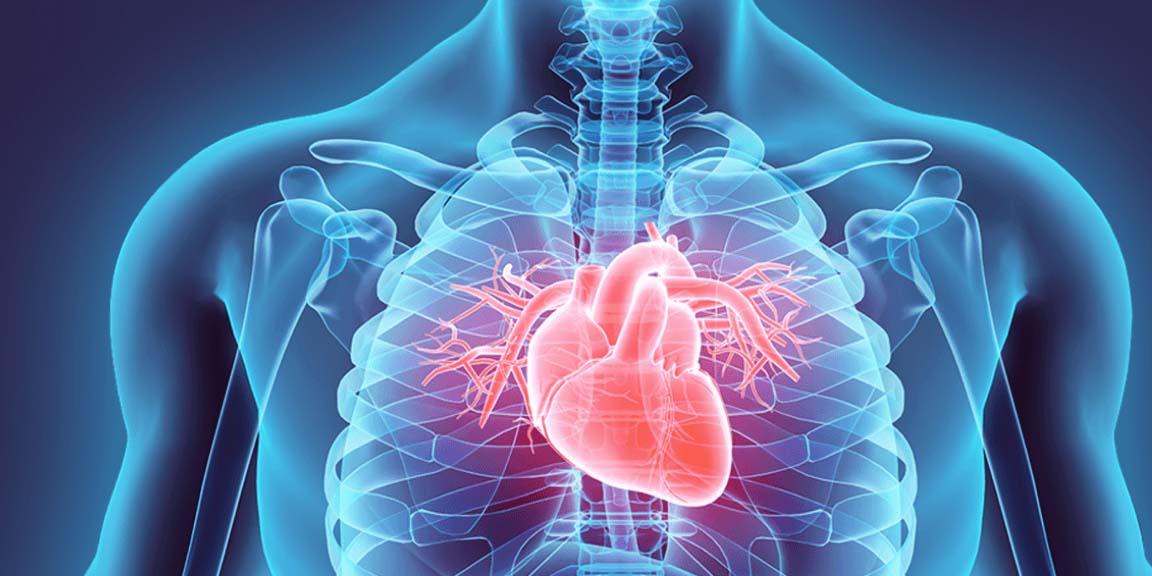The Intricate Pitfalls of Hypertrophic Cardiomyopathy: Understanding Symptoms and Causes
Hypertrophic Cardiomyopathy (HCM) is a complex heart condition characterized by the thickening of the heart muscles, particularly the left ventricle. This condition, although often hereditary, can manifest with diverse symptoms and poses a significant risk of complications. In this article, we will delve into the symptoms and possible causes of HCM, shedding light on the current state of research in this field.

Symptoms of Hypertrophic Cardiomyopathy:
- Shortness of Breath:
One of the primary symptoms of HCM is difficulty breathing, especially during physical exertion. The thickened heart muscle can obstruct the flow of blood from the heart, leading to inadequate oxygen supply to the body. - Chest Pain:
Individuals with HCM may experience chest pain or discomfort, often occurring during exercise. This is due to the increased workload on the heart and reduced blood flow to the coronary arteries. - Fatigue:
Persistent fatigue is a common symptom, as the heart has to work harder to pump blood throughout the body. This can result in an overall feeling of tiredness and weakness. - Heart Palpitations:
Irregular heartbeats, known as palpitations, can be a sign of HCM. The abnormal thickening of the heart muscle can disrupt the normal electrical signals, leading to irregular heart rhythms. - Dizziness and Fainting:
Insufficient blood supply to the brain due to the obstructed blood flow can cause dizziness and, in severe cases, fainting. This is a critical symptom that requires immediate medical attention.
Possible Causes of Hypertrophic Cardiomyopathy:
- Genetic Factors:
HCM is often hereditary, with mutations in certain genes responsible for the condition. These genetic mutations can lead to abnormal growth of the heart muscle. - Age and Gender:
While HCM can affect individuals of any age, it often becomes more symptomatic in adulthood. Additionally, men are more likely to experience severe symptoms and complications compared to women. - High Blood Pressure:
Chronic high blood pressure can contribute to the development and progression of HCM. The increased pressure in the arteries forces the heart to pump harder, leading to hypertrophy. - Metabolic Disorders:
Conditions such as diabetes and obesity have been linked to an increased risk of HCM. Metabolic factors can influence the structural and functional changes in the heart muscle. - Unknown Factors:
In some cases, the exact cause of HCM remains unknown. Research is ongoing to explore other potential factors, including environmental influences and additional genetic predispositions.
Current Research and References:
Researchers worldwide are actively engaged in unraveling the complexities of HCM, aiming to improve diagnostics, treatment options, and ultimately patient outcomes. Some notable research works include:
- Maron, B. J., et al. (2018). Clinical Course and Management of Hypertrophic Cardiomyopathy.
This comprehensive study delves into the long-term clinical outcomes of individuals with HCM, shedding light on the natural history of the disease and the efficacy of various management strategies. - Ho, C. Y., et al. (2015). Genetic Advances in Sarcomeric Cardiomyopathies: State of the Art.
Focusing on the genetic aspects of HCM, this research review discusses the latest advancements in understanding the genetic basis of the disease and potential implications for targeted therapies. - Ommen, S. R., et al. (2020). 2020 AHA/ACC Guideline for the Diagnosis and Treatment of Patients with Hypertrophic Cardiomyopathy.
This guideline provides an updated and comprehensive overview of the recommended diagnostic and treatment approaches for HCM, serving as a valuable resource for healthcare professionals. - Kubo, T., et al. (2017). Significance of High-Sensitivity Cardiac Troponin T in Hypertrophic Cardiomyopathy.
Exploring the role of cardiac biomarkers, this study investigates the significance of high-sensitivity troponin T in assessing disease severity and predicting adverse outcomes in HCM patients.
In conclusion, Hypertrophic Cardiomyopathy is a multifaceted condition with diverse symptoms and potential causes. Ongoing research is crucial for advancing our understanding of this disease and developing more effective strategies for diagnosis and treatment. The references mentioned above represent a fraction of the extensive research efforts dedicated to unraveling the complexities of HCM, offering hope for improved outcomes and enhanced patient care in the future.




